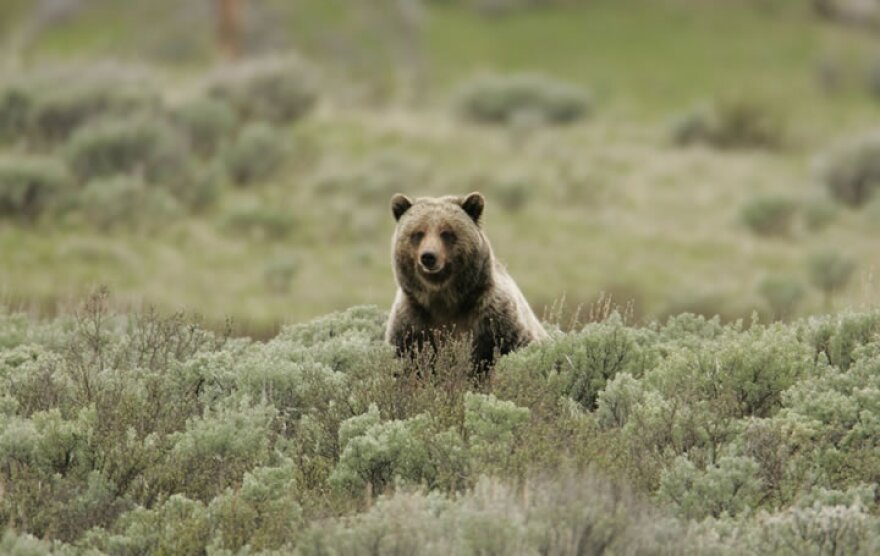The U.S. Interior Department announced changes Monday to how federal agencies will apply the Endangered Species Act (ESA). There is concern that the changes could affect Yellowstone grizzly bears' threatened status in the future.
The bears' status under the Endangered Species Act has been tied up in court for years.
John Mellgren with the Western Environmental Law Center says new changes to the landmark legislation will reduce federal agencies' ability to consider the effects of climate change when making decisions about whether to list or delist a species as threatened or endangered.
A previous attempt to delist grizzlies in the Greater Yellowstone Ecosystem was halted because a major food source, whitebark pine seeds, were found to be in decline due to warming temperatures.
"And so with these changes the federal government would likely have an easier time removing those protections again in the future, based on these changes and not needing to consider the effects of climate change because of this change to the definition of 'foreseeable future.'"
Changes to protections for threatened species are also raising concern, though it will only affect newly listed plants and animals.
"Threatened species and endangered species are both protected from take, which is basically causing any sort of harm to the species. But under the new rule change threatened species will no longer be protected automatically from take unless the Fish and Wildlife Service specifically grants it that protection."
Currently the U.S. Fish and Wildlife Service needs to approve any form of take or harm for each individual species.
The Montana Stockgrowers Association is applauding that change. The association’s Natural Resource Director Brian Ohs.
"We think this clarifies and streamlines the ESA so that if something is declared threatened, it allows for flexibility and innovation when dealing with the potential recovery for a species."
Other concerns have been raised about the inclusion of economic factors in analysis for listing species and whether suitable habitat not currently occupied by a threatened or endangered species will be protected in the future.
All questions about changes to the ESA are being deferred to the Interior Department. Montana Public Radio has submitted a list of questions, but did not hear back in time for this story.
The changes to the ESA are expected to take effect next month, though the reforms are likely to wind up in court.


